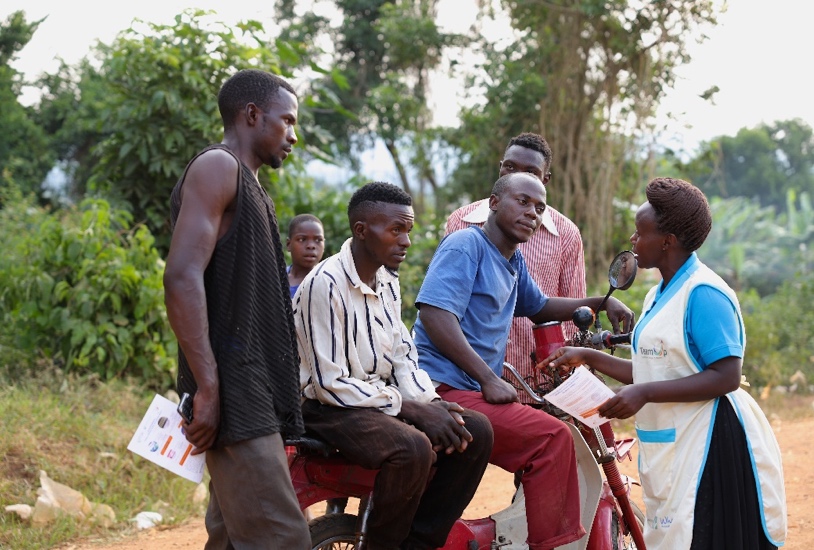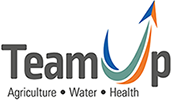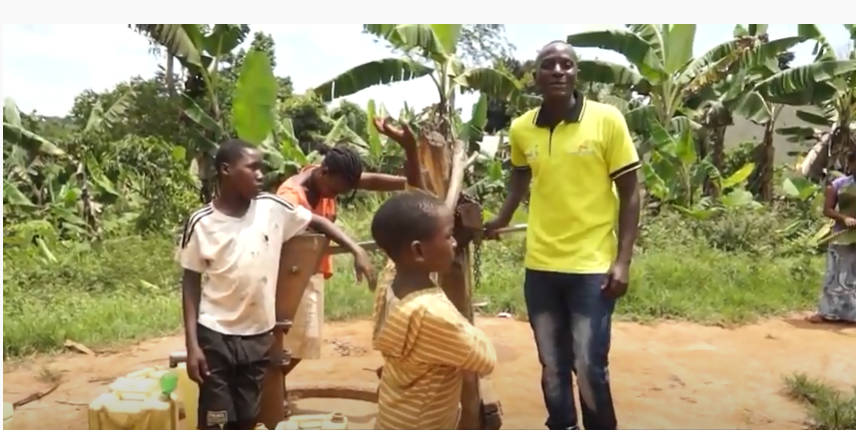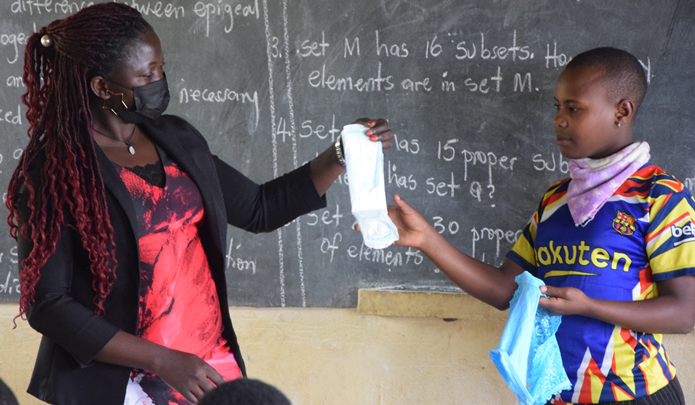
Improving young people’s quality of life through multi-sectoral collaboration in agriculture, water and health
Preliminary results of the National Population and Housing Census 2024 show that nearly 28 percent (13 million) of Uganda’s population are young people aged between 15 and 30 years. Out of these, 52 per cent are female while 48 per cent are male.
Young people face diverse challenges which include joblessness, inadequate employable skills, lack of productive assets, and limited access to social services such as sexual and reproductive health (SRH) information and products. These challenges predispose them to risky behaviours and vulnerabilities that result into exploitation, frustration, migration and overall low quality of life.
The German Federal Ministry for Economic Cooperation and Development (BMZ) together with Deutsche Stiftung Weltbevölkerung (DSW), Hanns R. Neumann Stiftung (HRNS) and Siemens Stiftung are collectively financing interventions to address a multitude of challenges facing young people in rural East Africa and improve their livelihood prospects.
In Uganda, the co-financing partnership brought together the expertise, networks, and resources of three local organsations to implement a multi-sectoral program named TeamUp in the two districts of Mityana and Kassanda in the central region. Action for Health Uganda (A4HU), Hanns R Neumann Stiftung (HRNS) and Whave Solutions are working in the multi sectors of Health, Agriculture and Water respectively to improve the livelihoods and quality of life primarily of young people.
TeamUp follows a holistic approach and includes elements of agriculture and agribusiness; acces to financial services; access to gender-sensitive, youth-friendly sexual and reproductive health and social services; youth participation in decision-making; reliable access to safe water; and access to quality vocational orientation. Girls and boys are empowered to actively shape developmental processes and to have their voices heard in the respective policy processes.
Peter and Agnes Kaweesa’s story
Peter Kaweesa, 27, and his wife, Agnes Namatovu, 25, joined Mawanda Kwekulakulanya Youth Development Group supported by TeamUp, in Kakindu sub county, Mityana district, in November 2022. They actively participated in the numerous training sessions offered by TeamUp partners on different topics including gender, agronomy, financial management, and health. They gained valuable knowledge, and Peter was later selected as the Youth Farmer Field School (YFFS) Facilitator for Mawanda parish.

In less than two years, the couple have become change agents in their community and embarked on a journey that is rapidly transforming their lives. “My husband and I used to live without any clear vision for our household. However, after participating in the TeamUp program, our mindset changed, and we began to see things differently,” says Agnes.
“We started thinking big and planning together, focusing on ambitious goals like buying land, building a house, and engaging in commercial agriculture. We started multiple home-based income generating projects including a grocery shop using funds borrowed from the village savings and loans association (VSLA), poultry, piggery, and planted more coffee and tomatoes. Following the advice of TeamUp agronomists deployed by HRNS, our seasonal income from one acre of coffee increased from Ugx 700,000 in November 2023 to 2,000,000 in April 2024. We also earned ugx3,000,000 from the tomato garden,” narrates Peter who is excited about the clear sense of direction in his family.
At the beginning of this year, the couple developed a household vision and budget, which included purchasing a television set, improving the latrine, acquiring solar lights, and buying a plot of land. In a space of nine months, the income realised from the various projects enabled them to buy a plot of land and a television set, and to start construction of an improved pit latrine.

“We have become public figures in our community; we have been entrusted with various leadership and mentorship roles in the church and Buganda Kingdom,” says Peter.
Regarding climate change, the couple has planted fruit trees that include avocados, oranges, and mangoes, and practices intercropping. They pay close attention to weather changes, hence minimising losses in their farming enterprises.
Seamless access to safe water
In addition to improving livelihood prospects for young people like Kaweesa’s family, many rural communities participating in the TeamUp program are benefiting from preventive maintenance services that guarantee access to safe and clean water from a nearby reliable water point.
Whave deploys a team of skilled water technicians who ensure the continued functionality of water sources by conducting regular preventive maintenance checks and quickly responding to breakdowns. Whave boasts of a rapid response rate that guarantees the repair of at least 90 percent of water source breakdowns within one day. This effectiveness is facilitated by a toll-free hotline allowing communities to report any fault promptly.

Whave signs service contracts with community members to provide preventive maintenance of water sources at a fee that is affordable to community members. This guarantees access to safe water for domestic and agricultural use in the communities where TeamUp works. Currently, Whave maintains 203 water sources in Mityana and Kassanda and three mini piped water systems.
Delivering SRH services to young people
Through the TeamUp program, A4HU aims to increase the capacity of young women and girls to claim and defend their rights to bodily integrity and a violence-free environment. This is done through training and mentorship to promote menstrual hygiene and bodily integrity.
A4HU utilizes the Youth Truck, a multi-media tool on wheels, to screen menstrual hygiene management videos in schools.
“After watching the menstural hygiene management video, I felt inspired to speak up about menstruation. I started helping my friends to stay clean and feel confident during their periods,” narrated a 12-year-old primary six pupil of Bakijulula Primary School in Mityana district.
Additionally, A4HU is implementing a novel social marketing model of the Flying Nurses who take affordable youth-friendly reproductive health services closer to the youth in hard-to-reach areas. The Flying Nurses offer family planning methods and address myths and misconceptions surrounding family planning, sexually transmitted diseases (STDs), and HIV/AIDS prevention, care, and treatment. This is meant to help the youth take charge of their sexual and reproductive health as they strive to realize their full potential.

In Bukooba Parish, Ssekanyonyi Sub-County, Mityana district, the Local Council Chairperson, Godfrey Kimaliridde, was delighted to have A4HU bring youth-friendly health services to his community.
“You have done the youths well in teaching them about their health; now they can take charge of their lives. At 75%, Bukooba has the biggest percentage of youth in Mityana District. This arrangement of the Flying Nurses will enable youth to access services cheaply, leading to reduced early pregnancies and STDs,” says Mr. Kimaliridde.
Key TeamUp results by December 2023
TeamUp proves that synergies created through the collaboration of various public, private and civil society stakeholders can positively increase the social impact for young people, primarily when dialogues are facilitated at the national, regional, district, and community levels.
So far, 33 % of the target youths enjoy improved quality of life; 31% generate income through individual or group businesses; 15.8% have access to resources and services including land, bulk marketing, value addition and financial services. TeamUp has supported youths to establish 90 VSLAs, trained 60 facilitators and 237 YFFS members in climate change adaptation; trained 47 couples as change agents and 43 young people in franchise marketing for rural hand washing stations. Up to 73% of young people have average or medium SRHR knowledge while 3,222 have benefitted from referrals to SRH service providers. More than13,000 youths have beensupported to receive services including HIV counselling and testing (HTC), family planning, condoms, STI/STD screening, counselling and antenatal care.
The future of TeamUp program
TeamUp is designed to be a long-term cooperation, to be scientifically accompanied, monitored, and evaluated while also being open to new partners. Engagements with different stakeholders including government entities and CSO are ongoing at local and national levels with the aim to scale up and replicate the TeamUp approach across the country. The target districts for the first phase of replication, which is planned to begin in 2026, are Nakaseke, Kyegegwa and Kikuube.



